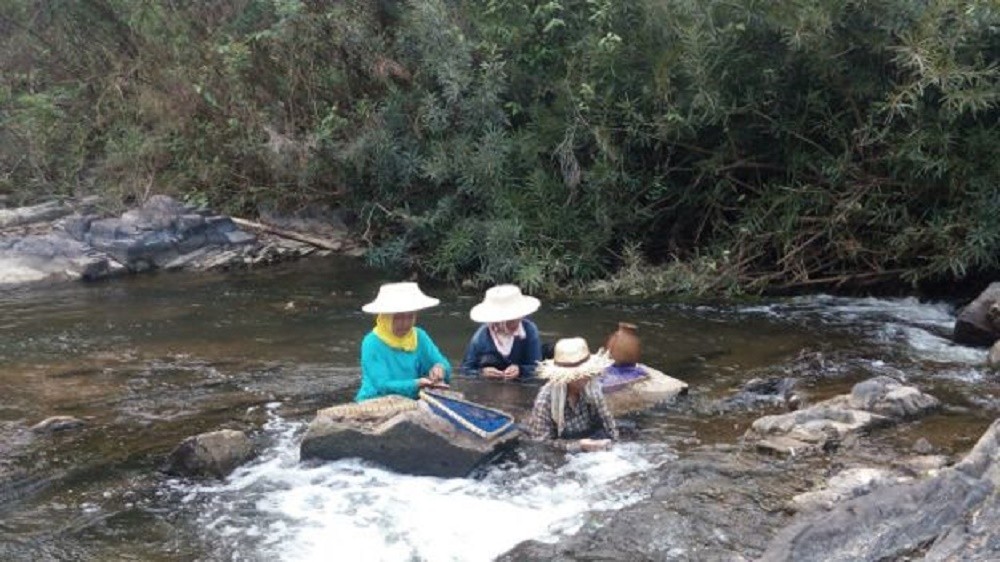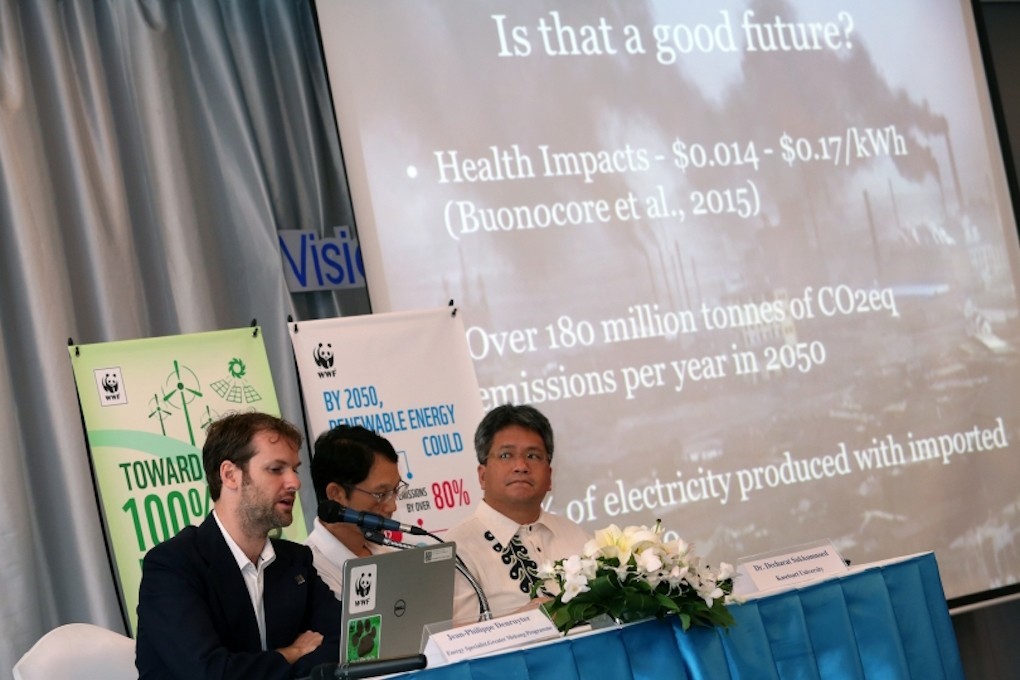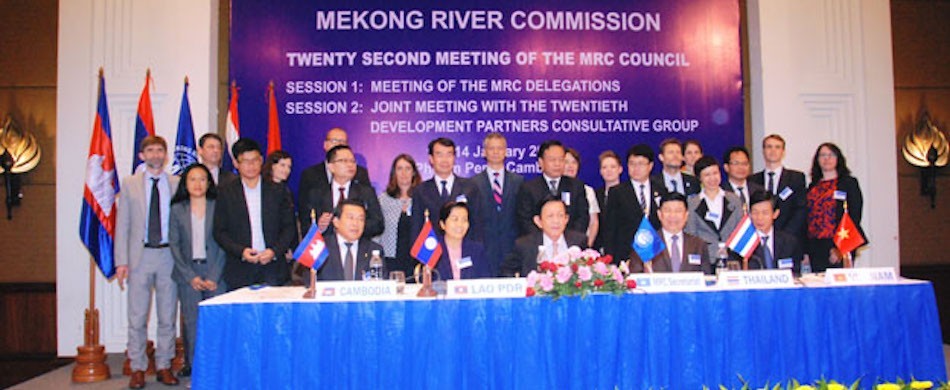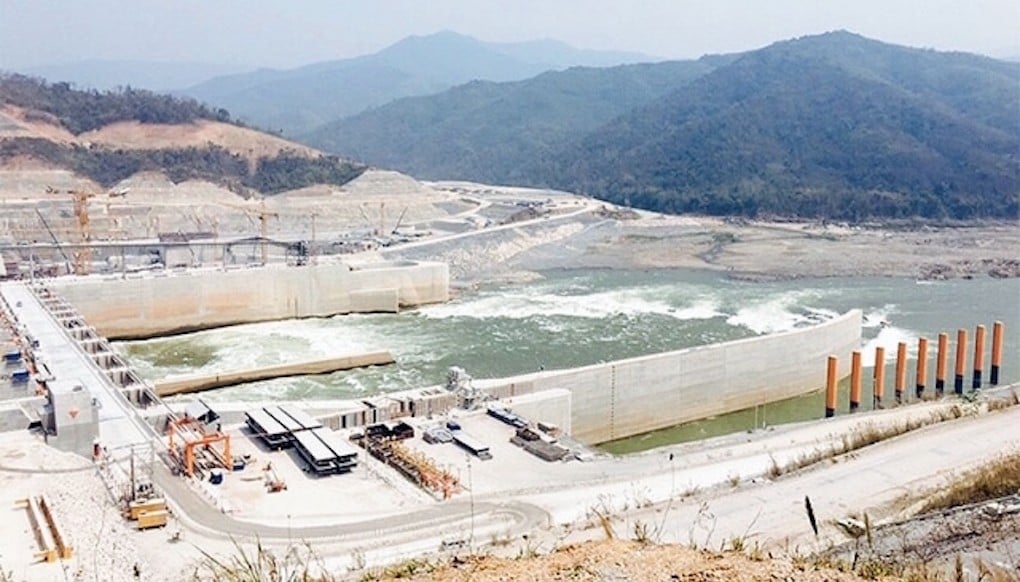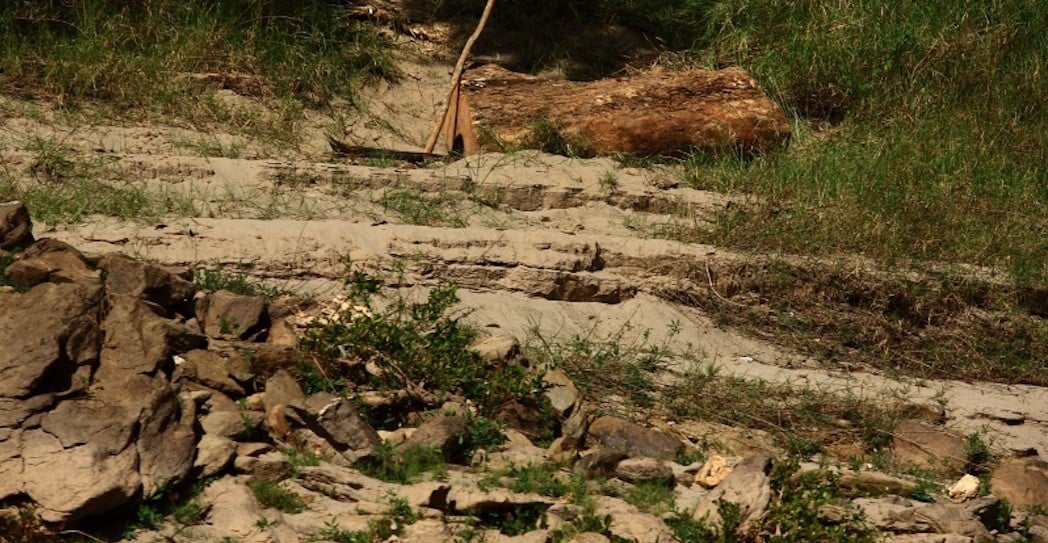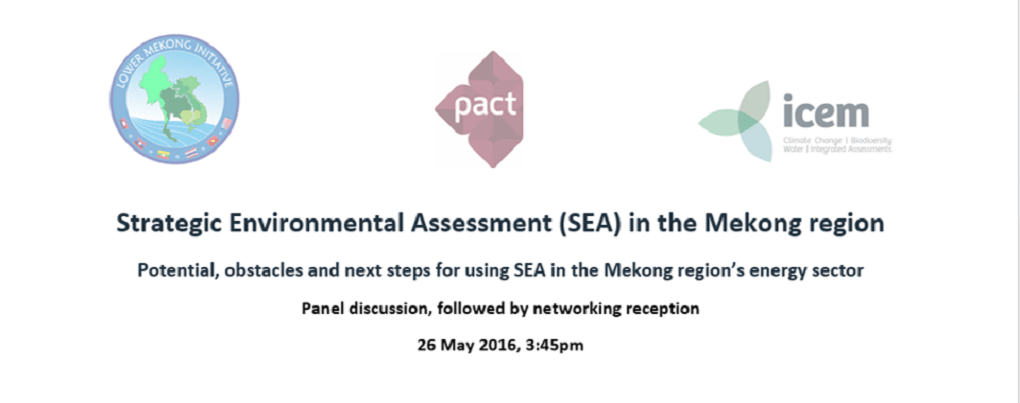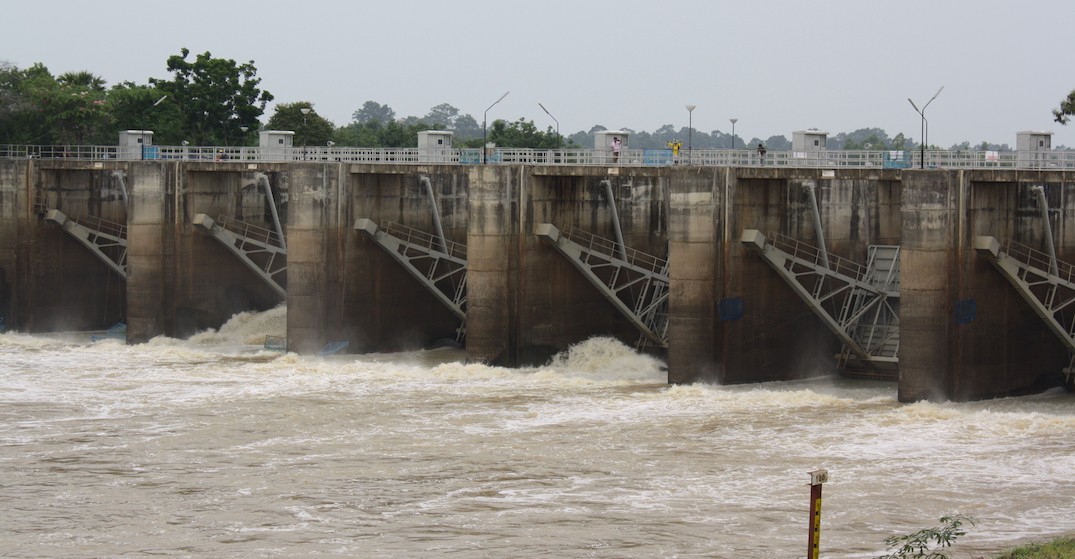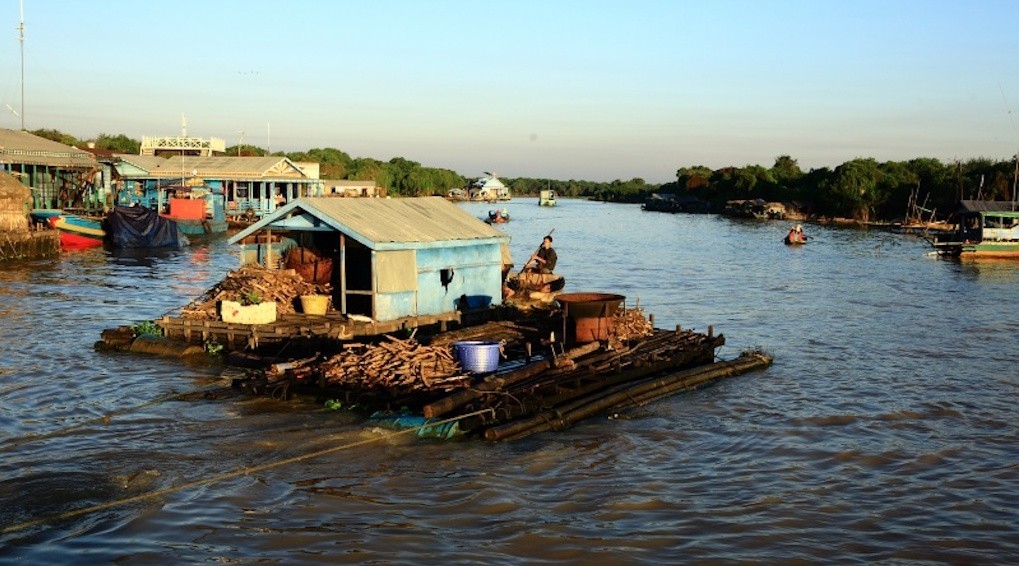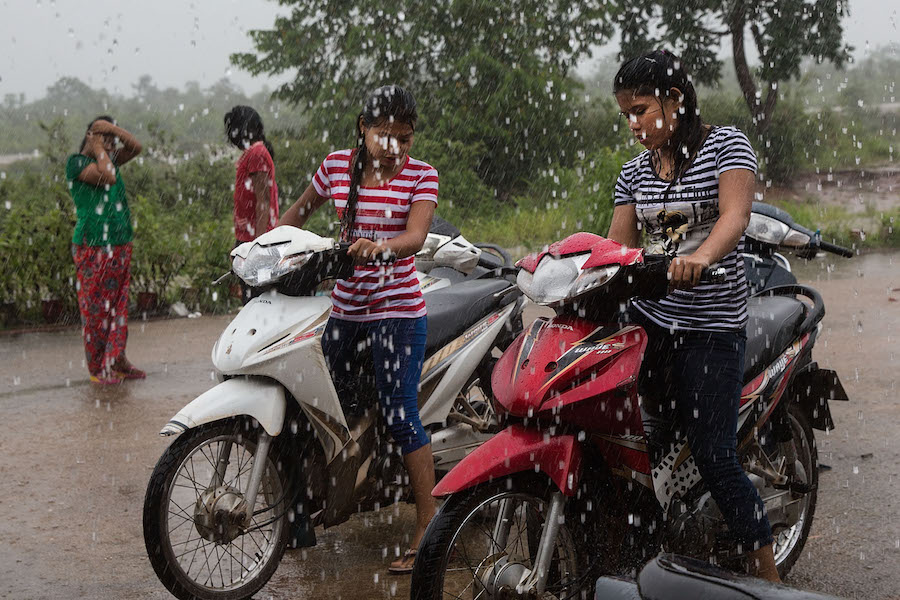Klang Village is located next to Loei river of Loei province, Thailand. In this area, there will be a project name Kong – Loei- Chi-Mun. This project aims to storage water for Thailand by dredging the Loei River further 5m deeply and spreading 250m wide of Loei estuaries. In addition, around 24 tunnels will be constructed at the bottom of the Loei river so there will more water volume from Mekong river flowing into Loei river, then to Chi and Mun river that help keep water for dry season in Thailand.
The head of Klang Village, Ms Sorarat Kaeswsa worried that if the river bottom is dredged, then there will be no fish anymore for their livelihoods. For many years their life has been based on this Loei river. The project director with the Thailand irrigation department, Ms Chawee Wongprasittiporn, said that the project will construct 1 to 2 tunnels first to see how water flows from the Mekong River to Loei River. Then they will decide about continuing construction or revising the plan.


